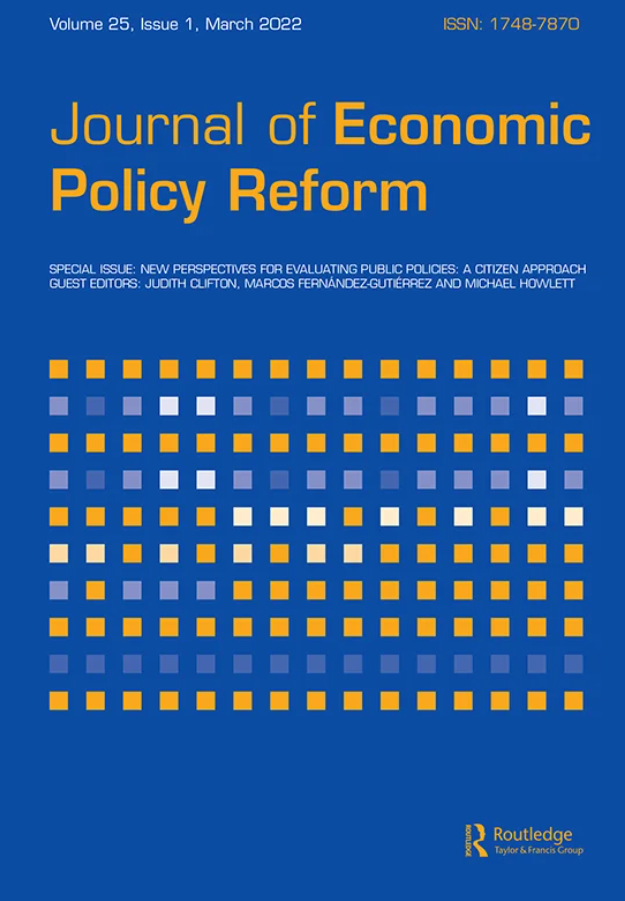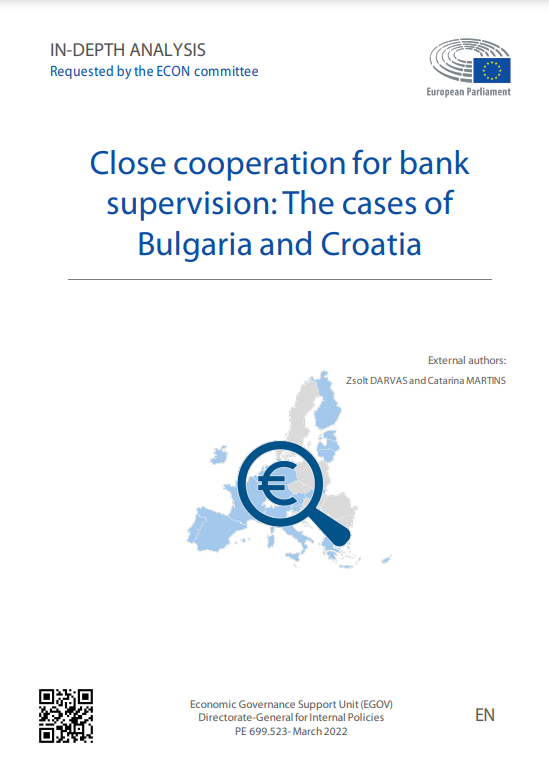Blog Post
Better sustainability data is still needed to accelerate the low-carbon transition in capital markets
Investors need more trustworthy sustainability data. Regulators should leave space for better products to emerge, while remaining alert to well-known patterns of misconduct in capital markets.
Capital reallocation towards sustainable investments is viewed as essential to Europe’s low-carbon transition. The European Union has already developed global standards with its taxonomy of sustainable activities and disclosure rules applying to financial market firms. But data on the environmental, social and governance (ESG) characteristics of companies, which are used extensively in asset management, remain a source of much frustration, and are increasingly in the regulators’ spotlight.
ESG quality means many things to many investors
ESG-focused investment has been a key trend in capital markets over the past two years. Outside the United States, the share of ESG-dedicated retail funds has jumped to 13% of total assets under management (though this share is only 1.5% within the US). While many existing funds have been simply re-labelled as sustainable by excluding certain industries, a big boost to this expansion came from EU requirements under the 2019 Sustainable Finance Disclosure Regulation (SFDR, (EU) 2019/2088) to label sustainable investment funds as either promoting positive environmental or social practices (so-called Art. 8 funds), or having such factors as their primary investment objective (Art. 9 funds).
Ratings and metrics that measure the ESG qualities of companies guide investor capital allocation and risk management. A metric for the environment pillar in an overall ESG score could for instance be based on carbon emissions, energy efficiency, other pollution or investment in low-carbon technologies. Computation of such data is of course based on extensive subjective judgements about which metrics to include, how to weigh data and what amounts to acceptable or desirable benchmarks in individual industries. Unlike for credit ratings, which is an opinion on a company’s ability and willingness to pay, there is no well-defined ESG outcome that confirms the initial assessment. History is a poor guide to climate risks.
The ESG data industry is undergoing a rapid expansion and is changing as methodologies are improved. The product offering has broadened beyond ratings and rankings and now includes screening services, indices and benchmarks. Data inputs and raw company data are a major constraint, though the accounting bodies are rapidly developing sustainability standards. For now, EU plans for more detailed and wider corporate sustainability disclosures, perhaps accessed through a centralised data platform, offer little immediate benefit to investors and data providers. Technological innovations are rapidly evolving and may fill some of these gaps, also for smaller companies. New tools draw on earth observation data, automated analysis of company reports, and carbon footprint accounting based on payments data.
For financial markets to function efficiently, data should be of uniform quality, updated regularly and free from bias: eg arising from company size, geography or industry. Current ESG data falls well short of this ideal. Divergence between ratings from different providers can be attributed to the inclusion of different categories, different measurements and different weighting, and also to the rating provider’s other unrelated assessments of the same company. A portfolio of securities highly rated on issuers’ ESG scores is not necessarily one with low carbon emissions. A high score in the ‘E’ pillar may not equate to low carbon emissions, as good intentions and forward-looking transition plans are often taken into account.
Will ESG data repeat the credit ratings debacle?
It all sounds similar to credit ratings, which played a major role in fuelling excessive investment in mortgage-backed securities ahead of the global financial crisis. The current surge in sustainable investing could lead to a green bubble and erosion of the quality of investment advice and sales practices, which are familiar from earlier boom-bust cycles.
No doubt, the boom in sustainable investment products can give rise to new patterns of market misconduct, which is the traditional realm of securities markets supervisors, such as the European Securities and Markets Authority. Misconduct could take the form of mis-selling (of products inappropriate for the end-investor’s sustainability preferences) or mis-representation (the deliberate distortion of true sustainability characteristics). Greenwashing securities is one form of the latter, in which marketing is used to portray an organisation’s products, activities or policies as environmentally friendly when they are not. Better ESG data that is transparent and explained clearly to end-investors could stem this practice, though in the first instance the capital market or intermediary (the asset manager or broker) is at fault.
The European Commission may be emboldened to examine ESG data and data providers given its experience of regulating credit ratings. It was the first major jurisdiction to do so after the global financial crisis, with comprehensive rules, designed to address conflicts of interest and inadequate credit rating methodologies, taking effect in 2013. Yet, the parallels are more limited than they appear. ESG data does not have the same significance in financial regulation as credit ratings once did. There is also not the same degree of industry concentration, which could give rise to correlated rating actions. Indeed, the ESG industry seems highly competitive as start-ups enter and new products are offered, though mergers of ESG data providers with established credit rating agencies should be watched.
The EU is particularly concerned by greenwashing in the context of its plan to expand green assets as a core component of its still nascent capital markets union. The confusion over ESG data could indeed deter institutional and retail investors (even if data is properly disclosed but poorly understood), or lead to capital misallocation in a green bubble (in which key risks are not reflected in the data). In July 2021, the European Commission therefore set out to examine how ESG risks are reflected in existing credit ratings, which are already regulated, and also whether the ESG industry itself warrants regulation. Other market regulators are looking at the same issue; the International Organisation of Securities Commissions is developing guidance.
The Commission’s approach
Two central tenets of capital market regulation are that the characteristics of financial instruments should be explained transparently, and that the preferences of end-investors must be taken into account in any sale. Retail investors traditionally benefit from additional protection and higher standards of disclosure.
In its efforts to strengthen the integrity of ESG investing, the EU should in the first instance hold brokers and asset managers accountable for any market misconduct, whether due to the poor use of ESG data or otherwise. The European Securities and Markets Authority and national supervisors already have the legal basis for closer scrutiny, though may need to be better resourced in their enforcement actions. This needs to be backed up by strong audit functions at national level, which should expose governance failures in capital market issuers.
ESG data is the new currency of sustainability-based investing and is indeed integral to this strategy. The underlying methodologies and the way data is integrated into the investment process will reflect the diversity of investor views. An ESG score may or may not impact credit quality but established rating agencies should demonstrate that they take such factors into account. Providers of ESG data and sustainability ratings are legitimate targets for regulators where conflicts of interest, market dominance or poor disclosure of methodologies are concerned. The understanding of ESG performance and data to measure it will continue to evolve within an industry that is both competitive and innovative. Better products should be allowed to emerge in the marketplace, not defined in regulation.
Recommended citation:
Lehmann, A. (2021) ‘Better sustainability data is still needed to accelerate the low-carbon transition in capital markets’, Bruegel Blog, 18 October
Republishing and referencing
Bruegel considers itself a public good and takes no institutional standpoint. Anyone is free to republish and/or quote this post without prior consent. Please provide a full reference, clearly stating Bruegel and the relevant author as the source, and include a prominent hyperlink to the original post.










